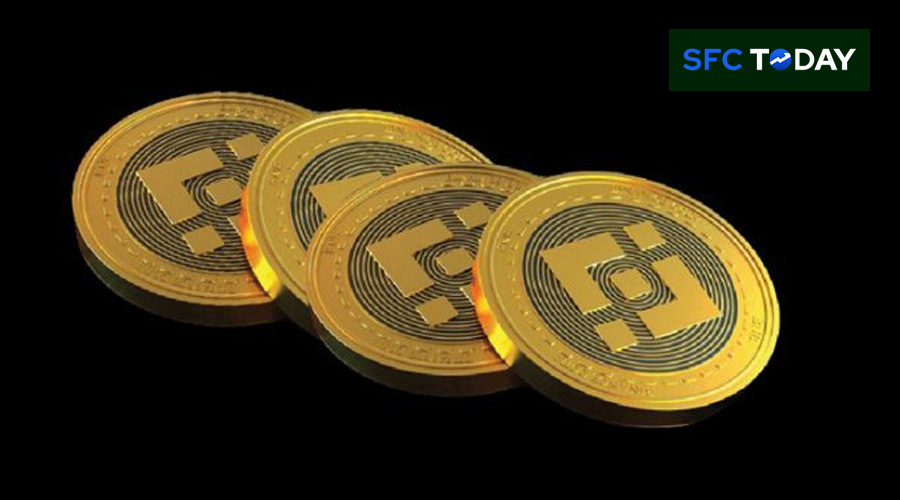Unveiling the Mysteries of Binance Coin: Functionality Explored and Demystified
Cryptocurrencies have revolutionized the financial landscape, offering innovative solutions to traditional banking and investment systems. Among these digital assets, Binance Coin (BNB) has emerged as a notable contender, playing a pivotal role within the Binance ecosystem and beyond. BNB functions as a utility token, providing users with discounts on trading fees and access to various Binance services. Moreover, its integration with the Binance Smart Chain and deflationary token burning mechanism contribute to its versatility and long-term value proposition. As investors increasingly recognize the potential of cryptocurrencies, understanding Binance Coin’s functionalities and its role in the broader digital asset ecosystem becomes paramount. This article aims to explore the intricacies of Binance Coin, shedding light on its functionalities and how it operates within the dynamic cryptocurrency landscape.
Utility Token:
At its core, Binance Coin functions as a utility token within the Binance platform. It offers users a plethora of benefits, including discounts on trading fees, access to token sales, and participation in various Binance-related services. Users can utilize BNB to pay for transaction fees on the Binance exchange, receiving discounts in the process. This utility aspect of Binance Coin incentivizes users to hold and utilize the token within the Binance ecosystem.
Integration with Binance Smart Chain (BSC):
Another critical aspect of Binance Coin’s functionality is its integration with the Binance Smart Chain (BSC). The BSC is a blockchain platform that enables developers to create decentralized applications (DApps) and smart contracts. BNB plays a vital role in the BSC ecosystem, serving as the native cryptocurrency for transaction fees and network operations. Moreover, BNB holders can participate in governance activities within the BSC, such as voting on proposals and protocol upgrades.
Token Burning Mechanism:
Binance Coin operates on a deflationary model, meaning that its total supply decreases over time. Binance conducts token burns during which a fraction of BNB tokens are permanently withdrawn from circulation. This process helps maintain scarcity and can potentially increase the value of remaining BNB tokens. Additionally, token burns contribute to the sustainability and long-term viability of the Binance ecosystem.
Staking and Yield Farming:
BNB holders have the opportunity to earn passive income through staking and yield farming. Staking involves locking up BNB tokens in a wallet to support network operations and earn rewards. Yield farming, on the other hand, involves providing liquidity to decentralized finance (DeFi) protocols and earning yields in return. Both staking and yield farming opportunities add value to the BNB ecosystem and incentivize holders to actively participate in network activities.
Investment Asset:
Beyond its utility functions, Binance Coin has also gained recognition as an investment asset. As the Binance platform continues to expand its offerings and attract users, the demand for BNB may increase, potentially leading to price appreciation. Moreover, Binance Coin’s integration into various decentralized finance (DeFi) protocols and its role as a governance token further enhance its investment appeal.
Integration with DeFi Protocols:
In addition to staking and yield farming, Binance Coin plays a crucial role in the decentralized finance (DeFi) ecosystem by integrating with various protocols and platforms. BNB holders can participate in DeFi lending and borrowing, decentralized exchanges (DEXs), and liquidity pools. By leveraging Binance Coin in DeFi applications, users can access a wide range of financial services without relying on traditional intermediaries. This integration not only expands the utility of BNB but also contributes to the growth and adoption of decentralized finance as a whole.
Community Governance:
Furthermore, Binance Coin serves as a governance token within the Binance ecosystem, allowing holders to participate in decision-making processes. BNB holders can vote on proposals related to platform upgrades, fee adjustments, and strategic initiatives. This democratic governance model empowers the community to shape the future direction of the Binance platform, fostering transparency, accountability, and decentralization. As a result, Binance Coin not only represents a valuable asset but also embodies the principles of community-driven governance in the cryptocurrency space.
In conclusion, Binance Coin represents more than just a digital currency; it embodies the evolution of cryptocurrencies and their integration into mainstream finance. With its versatile functionalities, including utility within the Binance ecosystem, integration with the Binance Smart Chain, and investment potential, BNB has solidified its position as a key player in the digital asset landscape.


